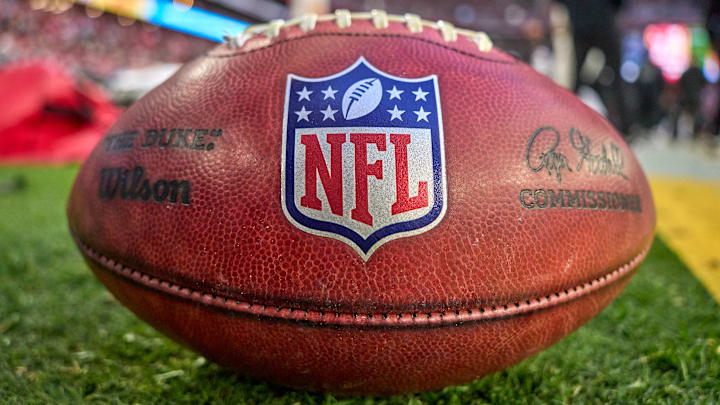What's the point of a fifth-year option on rookie NFL contracts, and how do they apply?
Option years on player contracts can be important things, and when one hears the term "option," it means just that.
It's optional.
MLB and NBA contracts have player options all over the place, but you won't see those grace NFL contracts under the current collective bargaining agreement. Even team options are rare.
But there's one kind of team option that almost always makes headway, especially regarding rookie contracts.
The fifth-year option.
What is a 5th-year option for NFL rookie contracts?
Earlier agreements between the league and players union mandated that contracts for drafted players follow a certain structure. While verbiage and terms can be negotiated heavily, the basic element is that all rookie draftee deals are for four years.
However, for players selected in Round 1 of the NFL Draft, teams have the choice to apply a fifth-year option. It's the team's right to do so, and players can't opt out of that option unless they hold out, which also can incur serious financial penalties.
Case in point, a player drafted in 2020 would have played that year through 2023 on the original four-year deal. But, if that player's team picked up the fifth-year option, he would stay under contract through the 2024 season.
Teams must elect to pick up a fifth-year option by a spring deadline one season prior to when the option would go into effect. Case in point, fifth-year options for players drafted in 2020 would have been picked up in May of 2023.
If a first-round pick was waived from the drafting team prior to the option being picked up, another team that signed him would not have the ability to apply such an option. If a team trades a Round 1-drafted player still on a rookie contract, the new team either inherits the fifth-year option (if already picked up) or can choose to apply it (if it hasn't been picked up yet).
Why would NFL teams use a 5th-year option
Teams don't have to use a fifth-year option. Perhaps some Round 1 draftees just aren't meeting expectations, which allows teams to simply let the original four-year deal expire without committing to a fifth year.
In other cases, teams opt not to pick up a fifth-year option but may negotiate a longer extension with the player instead.
However, fifth-year options are often picked up by teams if the player is meeting or exceeding expectations. There are times, too, when a team will use a first-round pick on a player who might have slipped into Round 2 simply to ensure they can have that fifth-year option.
Case in point, back in 2018, the Baltimore Ravens moved up to No. 32 overall for quarterback Lamar Jackson (who probably would have slipped into Round 2 of that year's draft), thereby giving them the choice of using a fifth-year option.
How much does a 5th-year option cost?
There are certain calculations that go into determining the value of a fifth-year option.
For example, the San Francisco 49ers picked up wide receiver Brandon Aiyuk's fifth-year option, which will be worth $14.12 million based on those calculations.
An important note about fifth-year options is that they're fully guaranteed.
This is why most players don't have issues accepting fifth-year options, because if they were to be released or suffer some sort of serious injury, that money would still be going their way without challenge or negotiation.
